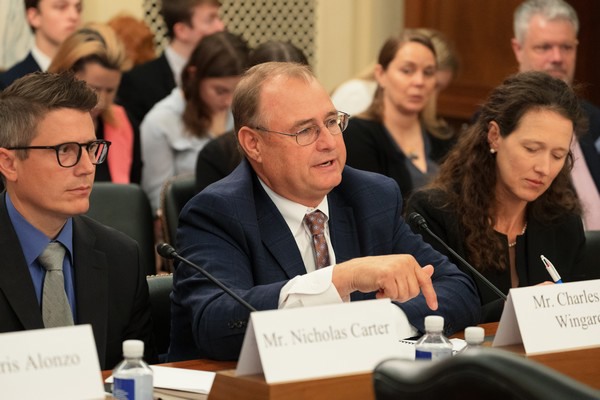For the second week, International Fresh Produce Association (IFPA) members are testifying at key hearings for the produce industry. The June 7 hearing is with the U.S. Senate Committee on Agriculture, Nutrition and Forestry subcommittee on Food and Nutrition, Specialty Crops, Organics and Research titled “How the Farm Bill Works for Specialty Crop Producers.”
“The Farm Bill is the single greatest investment in the produce and floral industries and is up for reauthorization every five years,” said IFPA vice president of US government relations, Rebeckah Adcock. “Our members, with their first-hand experience of both policies that work and those that do not, make the best advocates before Members of Congress as they head into Farm Bill negotiations.”
Charles Wingard, vice president of field operations, Walter P. Rawl & Co., provided testimony on behalf of IFPA and the industry. Wingard shared support for the work and recommendations of the Specialty Crop Farm Bill Alliance and highlighted key priorities critical to the success and growth of the specialty crops sector including crop insurance, conservation and the climate, nutrition, research, Specialty Crop Block Grants, organics and trade.
 Charles Wingard speaking to Committee.
Charles Wingard speaking to Committee.
“The current implementation of AGI limitations disproportionately prohibits specialty crop producers from participating in certain USDA programs in a meaningful way and potentially inhibits specialty crop producers from participating in disaster programs,” said Wingard. “USDA programs that require a means test for participation should be based on income derived from farming and be flexible enough to account for the variety of structures, accounting methods and other special considerations for specialty crop producers, not just their AGI.”
This has been a topic of concern for the industry, especially following the atmospheric river events in California earlier this year.
Wingard prioritized support for the Specialty Crop Research Initiative (SCRI). “SCRI addresses the critical needs of the industry by awarding grants that support research and that address key challenges of national, regional and multi-state importance in sustaining all components of food and agriculture, including conventional, contained environment and organic production systems. Currently, SCRI funds important projects in many states including Clemson University, Penn State, Michigan State, Cornell and the University of Georgia.”
Wingard also put a spotlight on the intersection of the Farm Bill with the realities of production by drawing attention to a recent EPA announcement revoking registration of the herbicide, DCPA, without available alternatives. “To effectively serve the specialty crop industry, we need mechanisms that can fast-track research and approval of crop protection tools,” said Wingard. “Both USDA’s Office of Pesticide Management Policy and the IR4 Project are key voices for specialty crop producers working with EPA on these issues and I implore you to elevate their mission and ensure their stable, robust funding.”
 For more information:
For more information:
Ashley Sempowski
International Fresh Produce Association
ASempowski@freshproduce.com
https://www.freshproduce.com/
